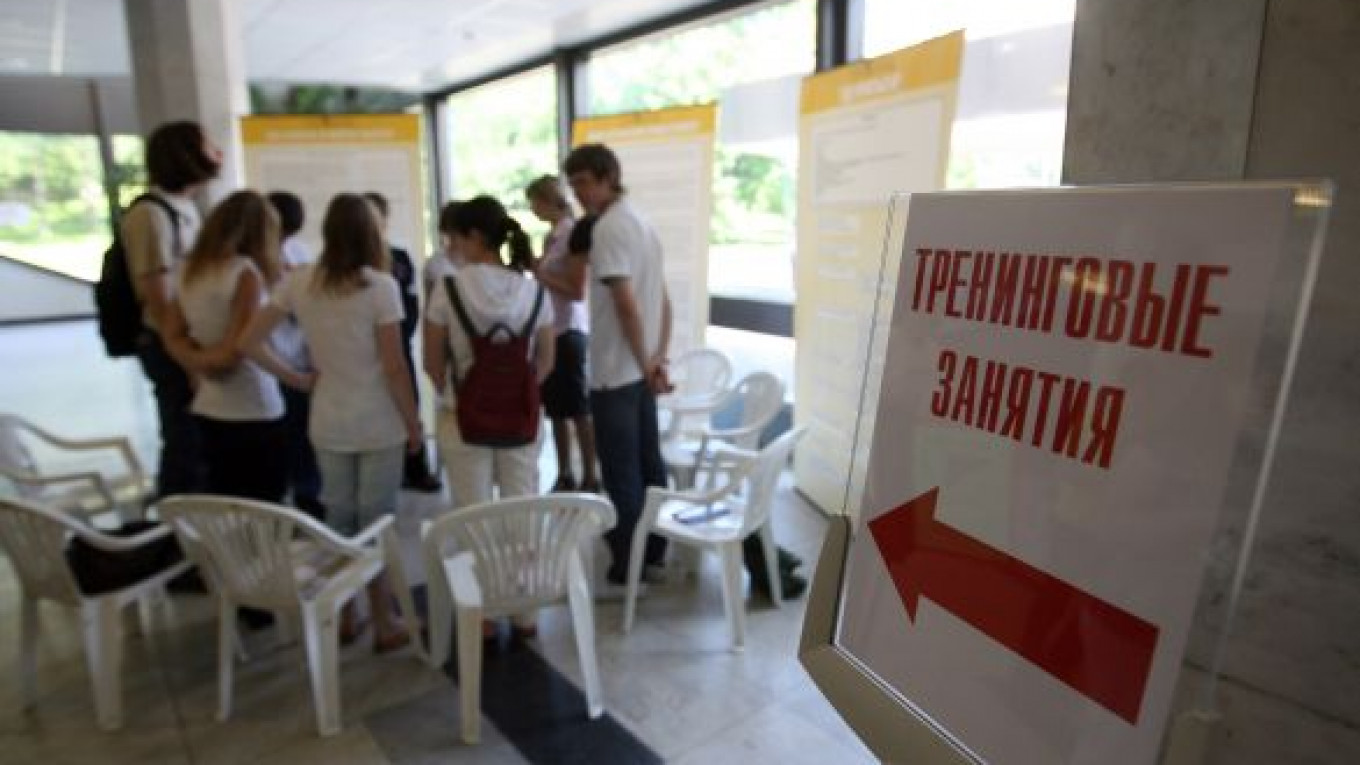While research companies are busy with compiling university rankings and Russian parliamentarians with looking for a guilty party responsible for the low scores, technology companies on the ground have come up with a way to educate their staff without involving outside educational institutions.
Dmitri Voloshin, Mail.ru's director of research and education, called this phenomenon Education 3.0. He said that when a business reached a point when outside providers are unable to offer challenging professional development courses to companies' staff, employees themselves tended to train each other within a framework of user groups, conferences and after-hour activities.
Voloshin labelled classic education as education 1.0, informal information sharing within a company as education 2.0, and corporate training within an official framework as education 3.0.
Building infrastructure intended to stimulate knowledge exchange between professionals within a company is a popular way to train new employees and encourage professional development within organizations, Vladimir Gimpelson of the Higher School of Economics told the Moscow Times on Tuesday.
But each company has different education requirements, and the value provided by external training bodies can not be underestimated, he said.
This new trend of professional development compliments the already established forms of training and consists of a two-way knowledge sharing method facilitated by the company's management, Anna Parshina said at the Russian Internet Forum last week. Parshina is head of the retailer Enter-Svyaznoi's department for employee happiness.
She added that this new method of development was often driven by the inability of external providers to meet the company's training requirements.
Parshina said that companies like Enter-Svyaznoi required a formal structure that facilitated information sharing and professional development within the organization.
Even businesses with no budget and no money are able to facilitate this training — some companies run training sessions after hours. She said that knowledge only evolved when it was shared and that it helped the company to survive.
Parshina said that sometimes managers put a group of employees through an official certification process to become lecturers in their area. This enables them to convert the information-sharing sessions into formal classes to train others and keep the know-how within the organization.
Some technology companies not only provide quality training but also focus on instilling a new way of thinking in their employees.
"For us, it's more than just professional development — it is a greater goal, an 'antivirus way of thinking,'" said Violetta Abramova, a Kaspersky Lab spokeswoman.
Rapid developments in information technology cause 50 brand new professions to spawn every year, Dmitri Voloshin said at the Russian Internet Forum. To be able to keep up with the pace, companies look for innovative ways to train staff as outside courses become quickly outdated.
Voloshin said sharing knowledge within a formal framework benefited all parties involved. It helps the teacher to think it through, allows others to develop professionally and enables the organization to keep the knowledge and improve its competitive advantage, he said.
Voloshin said that the concept of Education 3.0 by no means cancels out traditional forms of education.
He also said the lack of IT specialists was often caused by people not fully understanding the profession they are studying for.
Before going into IT, people need to talk to IT professionals, attend seminars and learn what the profession actually entails, he said.
While there are more vacancies than people looking for work, Voloshin spoke against bringing specialists from overseas, something that is common in other countries.
He said he did not believe that foreigners or Russian migrants returning to the country will be able to work 100 percent efficiently at Russian companies. He did not explain why.
Voloshin did say, however, that Russia has the potential to train its own young men and women and develop them into highly skilled professionals, much sought after by the ever-developing technology world.
Contact the author at g.moukine@imedia.ru
A Message from The Moscow Times:
Dear readers,
We are facing unprecedented challenges. Russia's Prosecutor General's Office has designated The Moscow Times as an "undesirable" organization, criminalizing our work and putting our staff at risk of prosecution. This follows our earlier unjust labeling as a "foreign agent."
These actions are direct attempts to silence independent journalism in Russia. The authorities claim our work "discredits the decisions of the Russian leadership." We see things differently: we strive to provide accurate, unbiased reporting on Russia.
We, the journalists of The Moscow Times, refuse to be silenced. But to continue our work, we need your help.
Your support, no matter how small, makes a world of difference. If you can, please support us monthly starting from just $2. It's quick to set up, and every contribution makes a significant impact.
By supporting The Moscow Times, you're defending open, independent journalism in the face of repression. Thank you for standing with us.
Remind me later.






